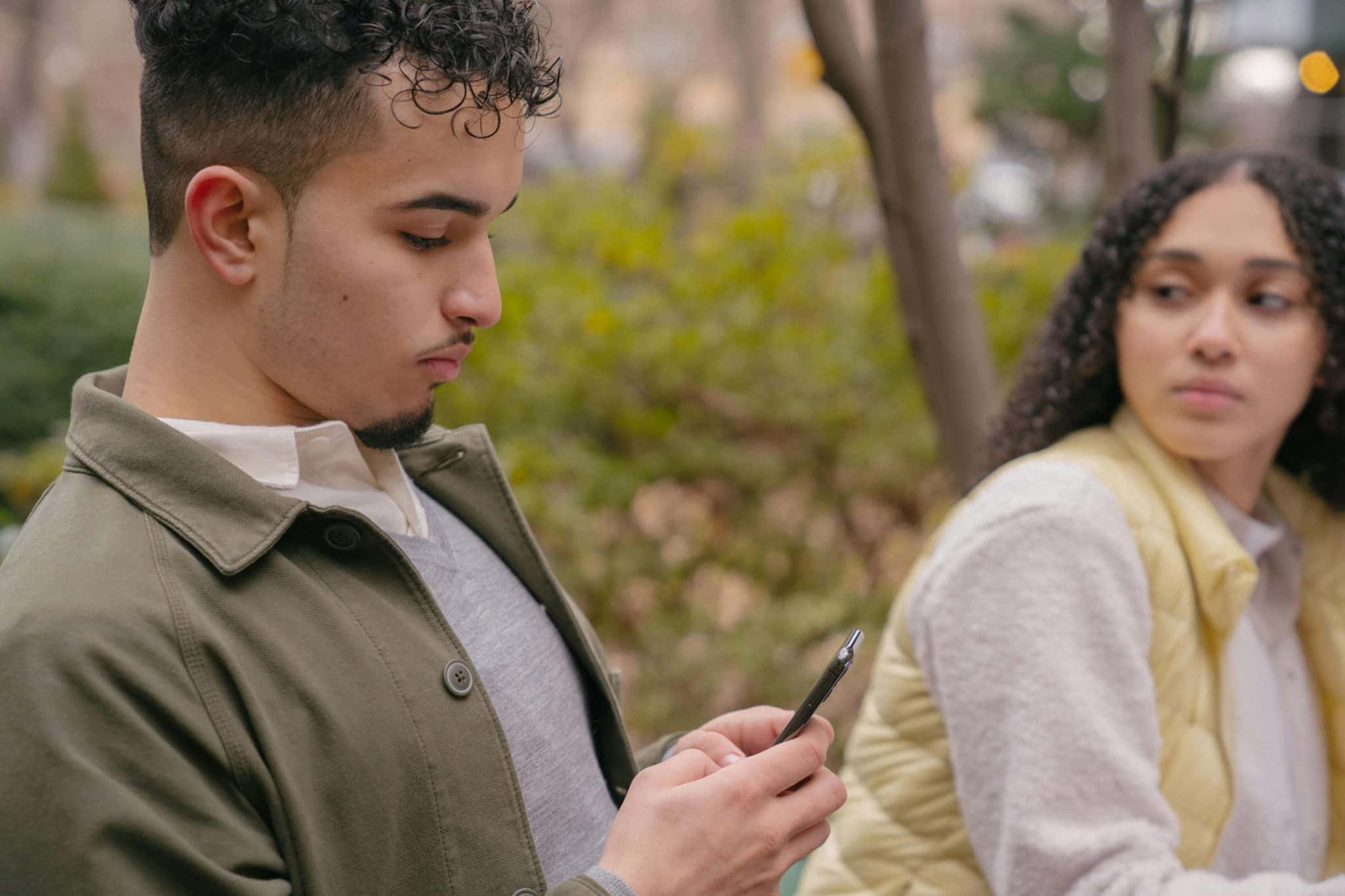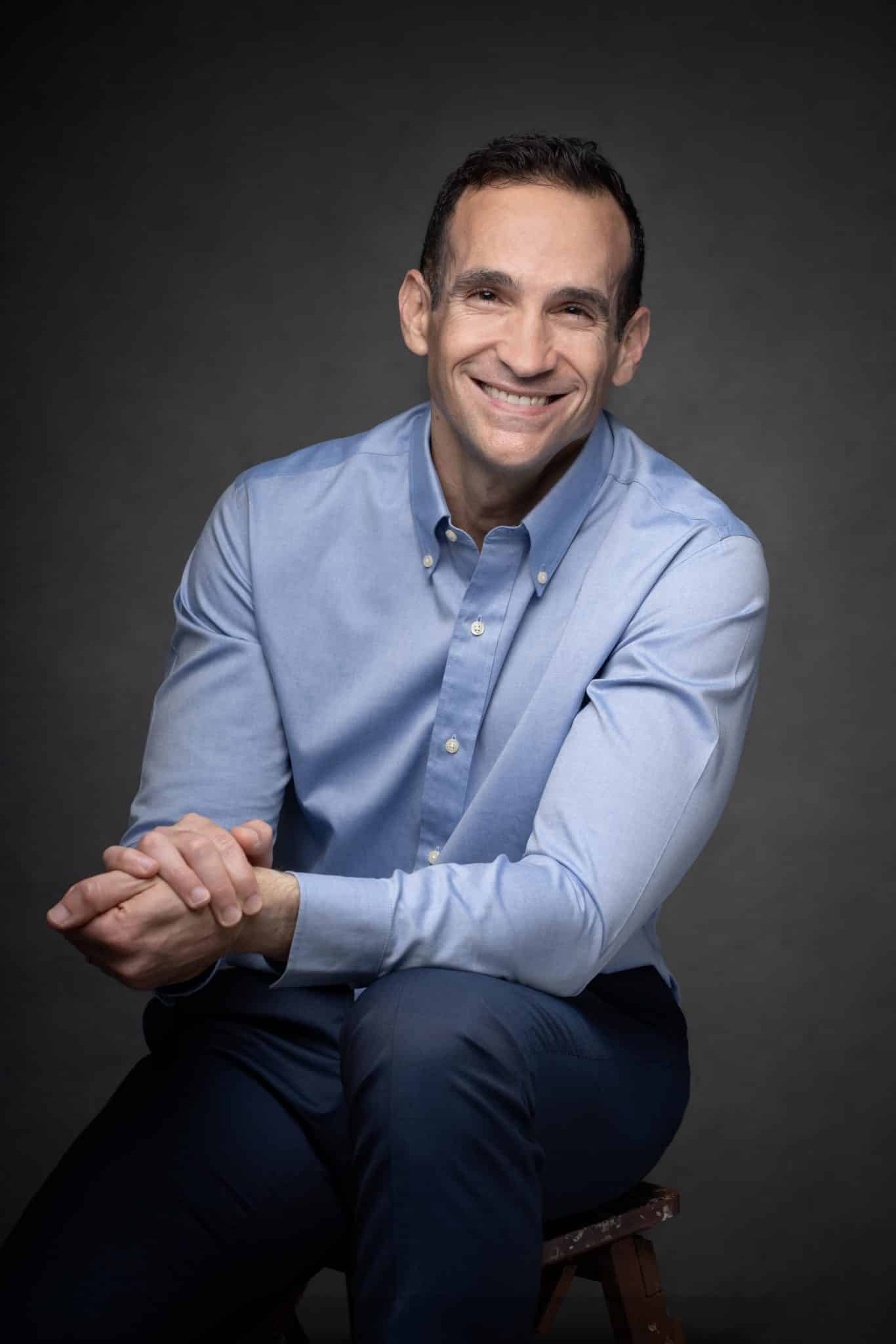How Leaning into Pain Can Help Manage Your Distraction

Learnings from the Freedom Matters Podcast by host Georgie Powell
Over the past few months on the Freedom Matters podcast, we have had the pleasure of speaking with some of the leading thinkers on the topics of technology, distraction, and addiction including Nicholas Carr, Nir Eyal, Adam Alter, Anna Lembke, and Oliver Burkeman.
We have been trying to get to the bottom of an important question – to what extent are we really in control of technology?
We’ve explored how our technology habits are affecting our knowledge, attention, daily decisions, time, and, vitally, our neurology. While mutual respect abounds, the perspectives of our guests range greatly, primarily with respect to how harmful technology can be, and how much personal agency we have over-controlling our habits (Anna Lembke and Nir Eyal, for instance, may never agree on the value of the term digital addiction).
However, differences aside, there is one thing all our guests agree on – unless we are conscious of how we engage with our devices, it is unlikely that we will ever be in control.
And here’s why:
1. Distraction is instinctive
“The basic reason that I try to unpack in the book is just that things that matter, bring us up against our limits. It’s not a coincidence that these things that we care about are the ones that are difficult to do because the stakes are high. Because if you’re beginning a piece of writing, say, just to use an example from my work, you don’t know for sure. It’s going to that, you’ve got the talent to make it work.
You don’t know for sure that you’ve got the ability to do it by the deadline. If there’s a deadline, you don’t know for sure that other people are going to praise it. And yet it really matters to you that all those things happen. So you’re in this kind of scary situation. “
Oliver Burkeman
Distraction is in our DNA. As hunters in the field, it was imperative that we were able to switch focus quickly whenever a threat was approaching or an opportunity for food materialized.
But distraction also exists as a mechanism for humans to avoid pain. What is the first thing that you do when a toddler falls over and bumps their knees? After checking that they are OK, you distract them. What do friends do when one of them has had their heart broken? They gather around, tell silly stories and cheer each other up with distractions.
But it is not just broken skin and hearts that can be painful. Emotions like boredom can also be incredibly intense. Relationships can be uncertain and letting go of control is hard. So too can be committing to major challenges or going the extra mile at work. Putting ourselves out there is painful.
“We do not tolerate any moments of any social awkwardness, any moments of boredom, any moments that have these brief breaks, where there’s not an obvious thing that we’re supposed to be paying attention to. What we do is we pave over those moments with a phone. I think that has really big effects in aggregate.”
Adam Alter
“And so the reason we have any habit, good habits, bad habits, any learned behaviors, the same reason we do anything. It’s the quickest route to alleviate our discomfort. And once the brain learns that this series of behaviors is what most efficiently, helps us absolve that discomfort. And it does so reliably. That’s what we’ll go for again and again and again.”
Nir Eyal
While seeking distraction from pain is not new, the problem is that distractions are more prevalent than ever before. We could always nibble our nails, tidy our desks, chat with a friend at the water-cooler, but now we are bombarded with information and content all the time. We no longer have to make up a distraction – they are being flung at us 24/7. Digital distractions are unrelenting, always near, and increasingly pervasive. And our desire to turn towards them is simply instinct.
“I think what’s different now is the sheer quantity and potency of ways to distract ourselves….This is unprecedented in human history that it’s just that easy to take ourselves away from the present moment and engage with a highly intoxicating substance or behavior that is infinite in quantity.”
Anna Lembke
2. Technology is engineered to keep us hooked
“They engage in a process known as a friction audit. They’ll take their products and try to find every single friction point that might lead people away from the product… You do repeated friction audits. What you end up doing is you create this kind of weaponized version of your platform, whether it’s a game, a social media app, whatever it is.”
Adam Alter
Add to this the fact that once we have been distracted by technology, it has been cleverly designed to hold us there. The technology has been built using reward pathways that play with our brain in the same way as any addictive substance or behavior, tipping our dopamine balance towards pleasure. This means that many of the distractions we end up pursuing online (take social media or scrolling the news), start to feel good.
Furthermore, we are knowledge-hungry beasts. Again, a natural instinct, we have always sought to gather information. The limitless abyss of the internet plays to this need. We forage through links, scrolls, emails, searching for the key. Some of this information is trustworthy, some of it has not. Collectively it has reset our tolerance for how we act, talk, and be as humans. We are increasingly comfortable with pornography, violence, abusive and polarising language. It has divided societies and in many cases eroded opportunity for a more nuanced and balanced middle-ground.
“So, what you talk about in terms of this pause button? Right. I mean, that’s, that’s brilliant because, Sometimes that’s all it takes is just a few extra moments.”
Anna Lembke
And the technology companies that dominate this space, continue to share with us the next piece of content, or information, that may or may not provide us with the key we are searching for. By offering us ‘variable rewards’ they hold our eyeballs, the currency for their ballooning balance sheets.
The attention economy has grown exponentially in the past 10 years, and without some radical shift in the underlying business objectives, it is hard to see how these businesses will ever be actively encouraging us to step away.
3. Information does not equal knowledge. To build knowledge, we need attention.
“I think we’ve come to think that simply gathering information is sufficient to thinking deeply. And therefore the more information that’s available to us in this, in the speedier it’s delivered to us, uh, that those have all come to be seen as good things.
And the internet certainly provides an incredible amount of information overlapping in all sorts of ways and coming at us all the time. What’s missing from that sense of our intellect is the fact that gathering information actually is only the first stage in thinking deeply.”
Nicolas Carr
Limitless access to information also appeals to our natural instinct to be informed. However, being swamped with information doesn’t make us smarter. Some of our guests have argued that it makes us more stupid.
Unless we stop integrating the information we inhale, we will never grow our knowledge. Knowledge requires context, memory, and space for the assimilation of our information.
“In order to have deep thoughts, you have to have a rich store of memories, and you really need to process that deeply, which requires attention.”
Nicholas Carr
4. A limitless world online makes it harder to confront our limits in the real world.
“And then also this really kind of interesting to me, phenomenology of beauty, of being online, what it feels like to be online in a space like a social media platform. It does have this limitless feeling. Right? So if what you’re really objecting to, about the thing you’re trying to focus on is that sort of feeling of being constrained and trapped in reality and wishing reality didn’t have these kinds of annoying constraints and limits.
It’s the exact opposite experience to float like a God around cyberspace, and to sort of find out what’s happening thousands and thousands of miles away without any limitation of geography, present yourself as whoever you want to be without any limitations of who you actually are. Just kind of… to be limitless or to feel limitless.”
Oliver Burkeman
We live in a world of infinite inputs. As Oliver Burkeman argues, “the internet means that there is no limit to the number of emails you can receive, the number of demands your boss can make, the number of business ventures you might want to launch, or places you might want to visit.”
It is impossible to respond to all these inputs. After all, how can you ever complete an infinite to-do list?
Additionally, with infinite inputs, we have infinite choice and therefore infinite opportunities for comparison and change. This makes it harder to stick with what we’ve got. But the reality is that at some point we have to settle. We have to accept the compromises that come with small things, like choosing one thing to do on a Saturday over another, despite the fact that social media will flood us with FOMO. If we want to settle down, then we have to choose who our life partner will be, recognizing that many more on an infinite scroll exist but you will now not meet them.
Is there a solution?
If we don’t master these internal triggers, they become our master. All the tips, tricks and hacks, they don’t work unless we start with the underlying reason we are getting distracted. What are we looking to escape from? Is it loneliness, boredom, fatigue, stress, anxiety, uncertainty. We’re going to always find some kind of escape, whether it’s news, booze, football, too much Facebook. We’re going to find a way to distract ourselves unless we know how to cope with that discomfort.
Nir Eyal
Through many of our episodes, there is a consistent theme. To manage distraction, and our technology habits, we have to first identify the emotions from which we are seeking distraction, and turn towards them, to lean into pain to get the meaningful things done.
“I think broadly what’s going on there is just that these technologies take us to the brink of feeling limitless, right?
And yet I think, for a lot of what meaningfully counts as productivity you do a lot better if you can sort of understand patience as a kind of subversive power, right?
It’s a way of resisting the cultural pressure to do everything as fast as possible. And I think that in all sorts of contexts it can give you an edge, right? I think in a work situation, um, if you can, if you can learn to resist the discomfort or to tolerate the discomfort that comes with spending an hour, just pondering a piece of writing before you start writing it. You just do a better job.”
Oliver Burkeman
“The third sort of large recommendation is actually to lean into the pain, to press on the pain side of the balance, to do things that are hard, both physically painful and emotionally painful. And I suggest a range of different things from exercise to ice, cold water baths. To just reading difficult texts, uninterrupted by ourselves or our phones or whatever it is, to doing things that are anxiety-provoking, going out and engaging with people that maybe we don’t really want to engage with, or that prompt our anxiety to things like, committing to telling the truth. Not telling a single lie for a whole day. These are things that are hard to do, but that are really worthwhile”
Anna Lembke
And secondly, we have to remain conscious that technology exists as a tool. It is not a part of us, and should not be given the grounds to dictate our life. Only we have this control.
“The antidote is to spend some time in a natural environment, or at least in an environment where based on what you’re seeing with your eyes, you have no idea what year it is. There’s a timelessness to what you’re looking at.”
Adam Alter
“The big mistake is to think, oh, my phone is part of me and it always has to be with me because as soon as you break that link, as soon as you say, now, this is a tool and it’s good in some cases, and it’s not good in other cases, then you can begin to retrain your mind to not expect constant stimulation and constant distraction.”
Nicholas Carr
And why is this all so important? Because phones are just the beginning.
A bigger point, which is my intent is not to say we shouldn’t use these very powerful technologies. My intent is to say that we need to, we need to have a more balanced way of thinking and behaving around the technologies, where we understand both their strengths and their weaknesses, and not simply look at our phones or our computers as all-purpose tools that we need to use for everything we do, because I think that’s a mistake.
Nicholas Carr
“I think one of the reasons why it’s so important for us to grapple with phone technology, though, it will, one day, seem quaint, is that we’re building up a set of tools to deal with it. And I hope we’re building up legislation and ways of managing the tech companies now so that when they become even more powerful than they are, when they have an even bigger effect on our lives, we’ve developed some broad coping skills that can be applied to whatever technology happens to emerge.”
Adam Alter


